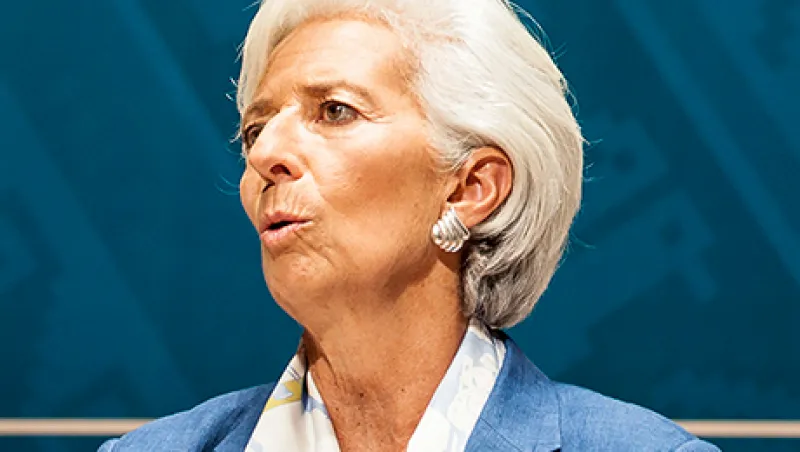The International Monetary Fund recently injected some welcome transparency in the reporting of global currency reserves by naming 96 of the 146 countries that share such data with the Fund. But the bigger news is the trend: Currency reserves are falling after an unprecedented buildup over the past ten to 15 years.
Since peaking at $11.98 trillion in the second quarter of 2014, they’ve dipped 4.3 percent, to $11.46 trillion at the end of June, according to the Fund’s Composition of Official Foreign Exchange Reserves, or COFER, database. High commodity prices and strong global trade growth have enabled nations from Brazil to Russia to South Korea to amass huge reserves since the early 2000s, but “that long trend is more or less coming to an end,” says Kit Juckes, head of foreign exchange strategy at Société Générale in London.
Much of the slide reflects China, which has seen its reserves — by far the world’s largest — fall nearly $500 billion over the past 15 months, to $3.51 trillion in September. China recently began sharing some reserve details with the IMF as part of its push to get the renminbi included in the Fund’s special drawing rights currency basket. Other notable decliners include Russia, which has run down its currency holdings to offset weak oil prices and international sanctions. Its reserves have plunged nearly a third in the past four years, to $366 billion in August.
“As long as we’re in a period of emerging-markets uncertainty, I guess reserves will be drawn down,” says Steven Englander, head of Group of 10 currency strategy at Citigroup in New York.
China’s reserves dwindled $96 billion in August alone as capital rushed out of the country following the surprise depreciation of the renminbi that month and a plunge in mainland stock prices, a move triggered in part by clumsy efforts to prop up the market. The authorities have shown a surer touch lately, and the Shanghai Stock Exchange has rebounded nearly 16 percent from its late-August lows, but the summer’s events showed how quickly reserves can run down and how destabilizing a currency adjustment can be for world markets. “It’s probably the biggest single tail risk facing the global economy today,” says Juckes.
The People’s Bank of China abruptly changed its method of calculating the daily renminbi fixing in August to allow market forces to play a greater role. After the renminbi dropped 3 percent in three days, the central bank appeared to intervene to stabilize the currency just below 6.40 to the U.S. dollar. A fall in the greenback after the U.S. Federal Reserve Board declined to raise interest rates in September has also helped the renminbi and several other emerging-markets currencies to stabilize in recent weeks.
Nikolaos Sgouropoulos, a forex strategist at Barclays in London, believes the respite is temporary. The U.S. is a bright spot in a sputtering global economy, and inflation remains mostly a distant threat. Many countries will be willing to let their currencies decline to boost export competitiveness and growth, Sgouropoulos predicts. “Our view is that this is probably not going to go away anytime soon,” he says. “We are expecting significant weakness in emerging Asian currencies against the dollar.”
The dollar’s outlook might be bright, but going forward, central banks may be as likely to sell as buy, says Citi’s Englander. The dollar’s portion of global reserves, or at least what central banks disclose, rose to 63.7 percent at the end of the second quarter from 60.8 percent a year earlier, while the euro’s slice shrank to 20.5 percent from 24.1 percent, the IMF reports. Englander argues that many central banks won’t want to see the dollar’s share of their reserves grow, and may even use the U.S. unit’s strength to diversify. “This is probably the best time you’re going to see to get your dollar share down,” he says. •






